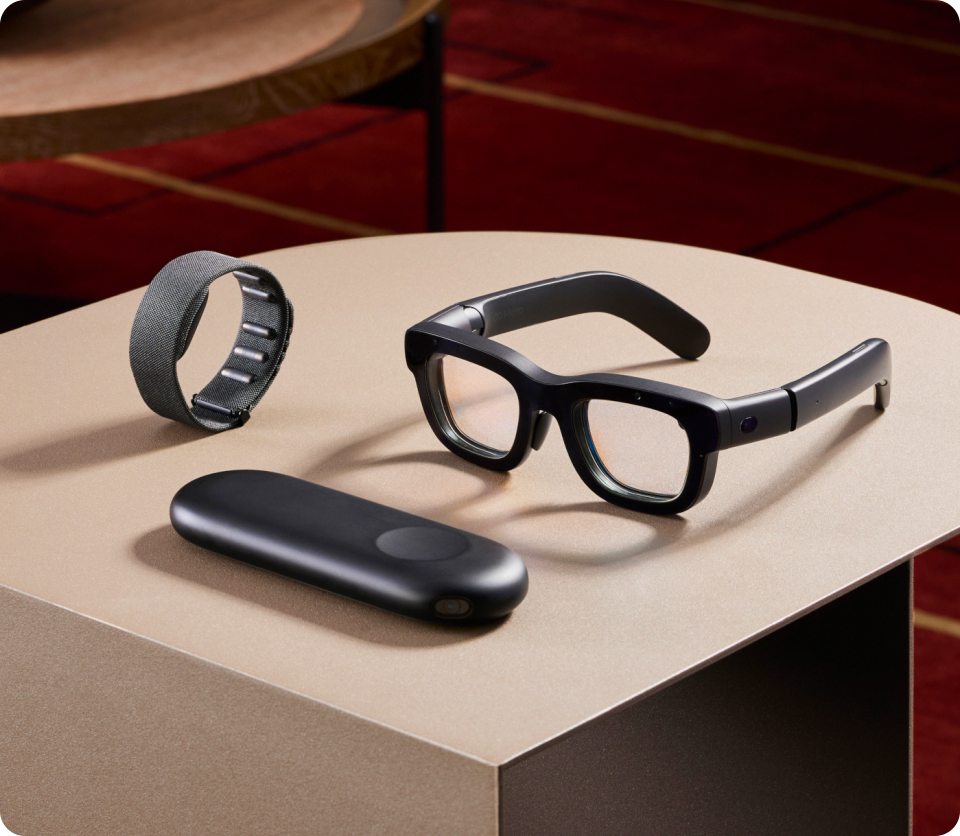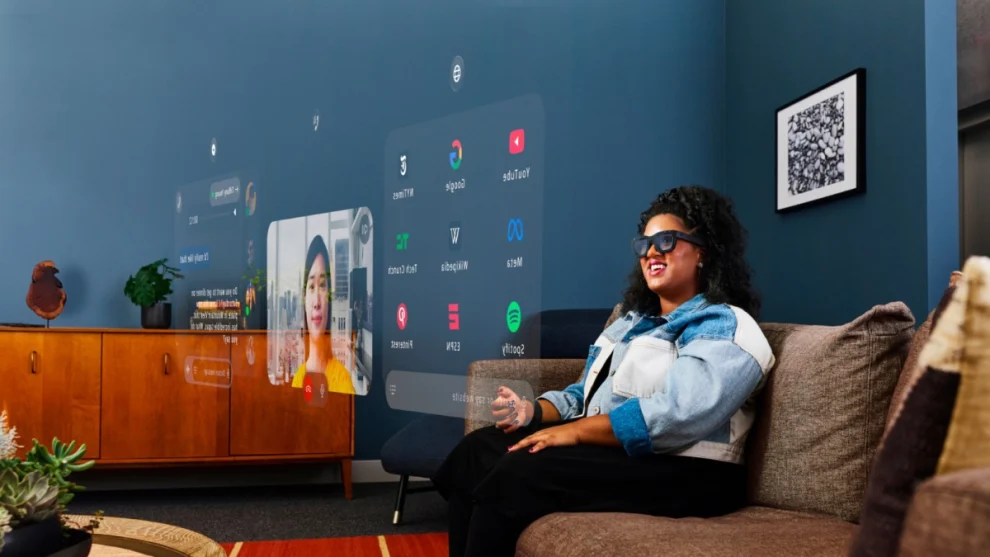Meta unveils Orion AR glasses, transforming commerce and challenging payment systems. Experts discuss the future of AR-driven shopping and the need for innovative payment solutions.
In a groundbreaking announcement that has sent ripples through the tech and retail industries, Meta unveiled its highly anticipated Orion augmented reality (AR) glasses last week. This latest innovation promises to revolutionize not just how we interact with technology, but how we shop and pay for goods and services in the digital age.
On a crisp autumn morning in Menlo Park, California, Meta’s sprawling campus buzzed with excitement as journalists and industry insiders gathered for the unveiling of Orion. The air was thick with anticipation as Meta’s CEO took the stage, holding what looked like an ordinary pair of glasses.

“Ladies and gentlemen,” he began, his voice echoing through the auditorium, “what you’re seeing is not just a pair of glasses. It’s the future of human-computer interaction.”
As he slipped on the Orion AR glasses, the audience gasped. Suddenly, the world around him came alive with digital information, seamlessly blending with reality.
The key to Orion’s success lies in its innovative use of silicon carbide, a refractive material that allows for holographic AR displays. This marks a significant departure from the “passthrough” techniques used in current virtual reality (VR) devices.
Dr. Sarah Chen, lead materials scientist at Meta, explained the breakthrough: “Silicon carbide has allowed us to create truly immersive AR experiences without the bulkiness of traditional headsets. It’s like having a high-definition screen floating right in front of your eyes, yet you can still see the real world around you.”
This technological leap forward has not been without its challenges. Meta’s statement revealed that the Orion AR team initially believed they had “less than a 10% chance” of successfully developing the product.

“Nailing the form factor, delivering holographic displays, developing compelling AR experiences, creating new human-computer interaction (HCI) paradigms — and doing it all in one cohesive product — is one of the most difficult challenges our industry has ever faced,” the statement read.
As consumers and retailers alike grapple with the implications of this new technology, one thing is clear: the way we shop is about to change dramatically.
John Martinez, a retail analyst present at the unveiling, shared his thoughts: “Imagine walking down a street and seeing personalized offers pop up as you glance at store windows. Or trying on clothes virtually without ever stepping into a fitting room. That’s the kind of seamless, interactive shopping experience Orion promises.
Indeed, the potential for AR in retail is staggering. THECHIPBLOG Intelligence study, “The Online Features Driving Consumers to Shop With Brands, Retailers or Marketplaces,” revealed that 40% of consumers consider ease of navigation when choosing where to make purchases online. AR glasses like Orion could take this ease of use to a whole new level.
However, as exciting as the prospects for AR-driven commerce are, they also present significant challenges, particularly in the realm of payments.
Traditional payment systems — designed for clicks, taps, and swipes — are not equipped for the frictionless, real-time demands of AR commerce,” noted Emily Wong, a fintech expert attending the event. “We’re looking at a future where the act of paying needs to be as seamless and invisible as the AR experience itself.”
This sentiment was echoed by Julius Alexander III, head of emerging payments at Discover® Global Network. Speaking about the future of payments in innovative environments, he emphasized, “The payment process is extremely important, and it can help the industry achieve high levels of innovation while providing payment methods familiar to consumers in their daily lives.”
As the sun set on the day of Orion’s unveiling, discussions among attendees turned to the future of payments in an AR-driven world. Many experts agreed that biometric authentication, voice commands, and gesture-based payments could become essential for delivering the kind of frictionless transactions AR glasses promise to facilitate.
Dr. Lisa Patel, a cybersecurity expert specializing in biometric authentication, offered her insights: “We’re likely to see a shift towards facial recognition, iris scanning, or even voice identification as standard security measures for AR payments. The goal is to make the payment process as natural and unobtrusive as possible.”
Voice-activated payments are another area of intense interest. With advances in natural language processing, users may soon be able to complete purchases with simple voice commands, without ever needing to manually input payment information.
Despite the excitement surrounding Orion and its potential to transform commerce, significant hurdles remain. Cost and user-friendliness are two major factors that will determine whether AR glasses become ubiquitous or go the way of Google Glass.
Mark Johnson, a consumer technology analyst, cautioned: “For AR glasses to truly take off, manufacturers like Meta will need to make them both affordable and easy to use. Right now, we’re still in the early adopter phase.”

Moreover, the development of a robust payment infrastructure to support AR commerce will require collaboration across multiple industries. Banks, payment processors, and tech companies will need to work together to create seamless, secure payment solutions that can keep pace with the AR revolution.
As the Orion unveiling event wound down, attendees were left with a tantalizing glimpse of a future where the lines between physical and digital commerce blur. In this world, shopping becomes a highly personalized, interactive experience, with payments happening seamlessly in the background.
While challenges remain, the potential for AR to transform not just how we shop, but how we interact with the world around us, is undeniable. As Meta’s CEO stated in his closing remarks, “Orion is more than just a product. It’s a stepping stone towards a future where technology enhances our human experience, rather than distracting from it.
As journalists and industry experts filed out of the auditorium, the buzz of excitement was palpable. Whether Orion will live up to its promise remains to be seen, but one thing is certain: the world of commerce and payments is on the cusp of a revolutionary change.
















Add Comment